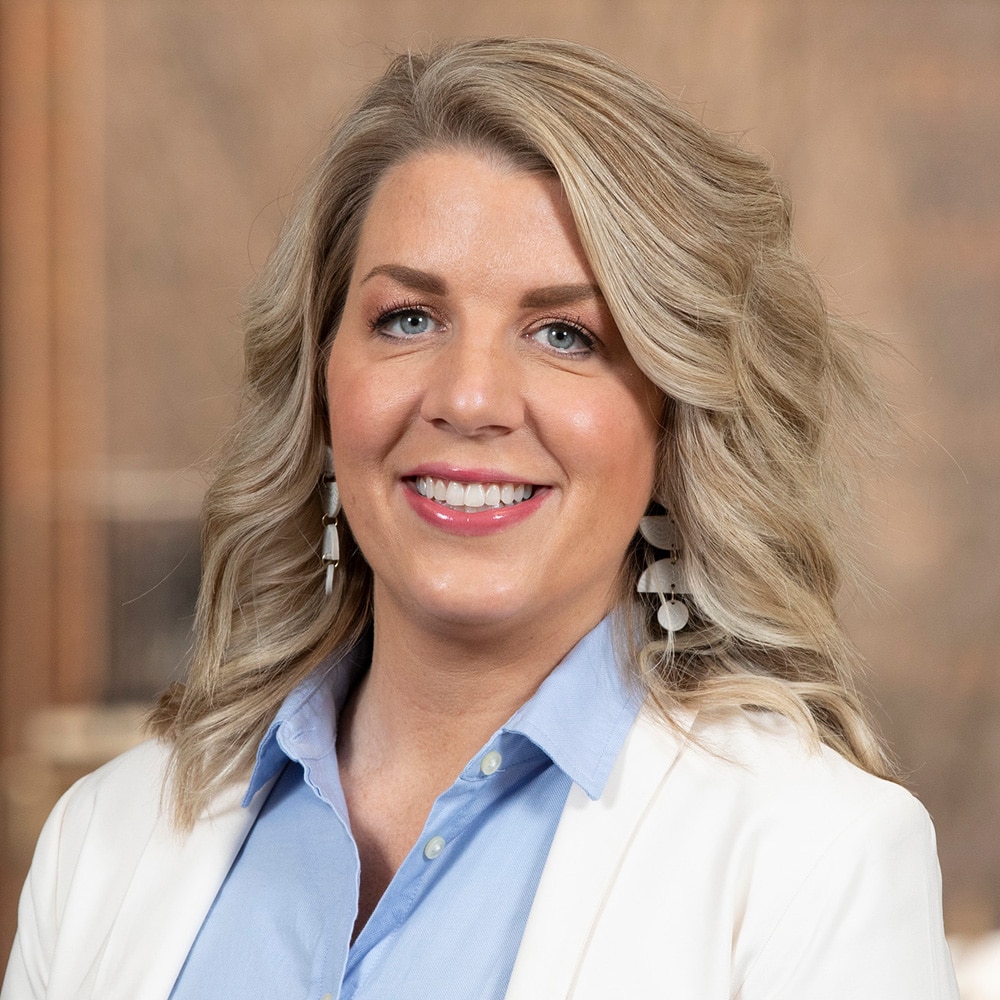Occupational therapists help individuals develop, adapt, recover, improve and maintain the skills of daily life, or “occupations,” that allow them to live life to the fullest. For the majority of American adults, those occupations include driving, a skill that can be impaired by injury or illness. In recent years Kelsee Hove, O.T.D., OTR/L, CBIS, DRP, director of clinical education and assistant professor in DMU’s Doctor of Occupational Therapy (O.T.D.) Program, has refined her skills in assisting individuals who have suffered diminished driving skills: She recently earned the Driver Rehabilitation Professional Microcredential through the Association for Driver Rehabilitation Specialists.
She is one of only two individuals in the state of Iowa, and the only occupational therapist, with this microcredential.

“Occupational therapy broadly covers everything a person does in daily life, from leisure activities to getting ready for the day to going to a job,” she says. “Driving is one of those important tasks for many people and contributes to overall quality of life.”
Dr. Hove earned a Certificate in Driver Rehabilitation Therapy through the University of Florida in 2019, which contributed to her fulfillment of the microcredential. That required completion of several courses including a traffic safety course. Her participation in the course was supported by a scholarship from the Association of Driver Rehabilitation Specialists, of which she is a member. This microcredential represents a professional in the field of driver rehabilitation who is equipped to screen and evaluate drivers who are medically at risk for driving or who may be unfit to drive, as well as provide evidence-based interventions for drivers.
Those interventions may be low- or high-tech, Dr. Hove explains, depending on each person’s needs and abilities. Her training for the microcredential encompasses only low-tech interventions. In her previous role as an occupational therapist at On With Life, an Iowa-based organization that serves individuals who’ve survived brain injuries, she recognized the need for driver rehabilitation services. She continues to serve patients at On With Life on a PRN, or “as needed,” basis.
Also a former assistant professor of occupational therapy at Drake University, Dr. Hove joined the DMU faculty in February 2022. In addition to her DRP Microcredential, she is a Certified Brain Injury Specialist and has a Seizure Recognition and First Aid Certification. She also is Mental Health First Aid U.S.A.-trained, is Lee Silverman Voice Training Big (LSVT Big)-certified, and is a Brain Injury Fundamentals Trainer through the Brain Injury Association of America.
One of the degree programs offered by DMU’s College of Health Sciences, the University’s new O.T.D. program was approved by the Higher Learning Commission in May 2022 and has applied for accreditation by the Accreditation Council for Occupational Therapy Education of the American Occupational Therapy Association. Its inaugural class is expected to begin the program in 2023 on DMU’s new campus, which is under construction in West Des Moines.
Among the most affordable O.T.D. programs in the region, DMU’s O.T.D. program also will be the only one in Iowa that students can complete in person or in a hybrid format, with a mix of in-person laboratories and online course work. Unlike programs at other institutions that require three or four years of undergraduate courses, DMU allows students to apply to its program with 60 undergraduate credits so long as they meet prerequisite requirements. A bachelor’s degree and the GRE are not required to apply.

